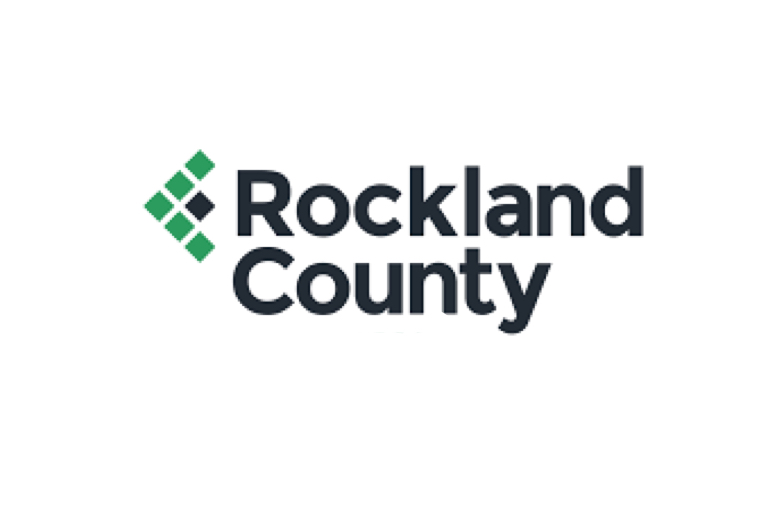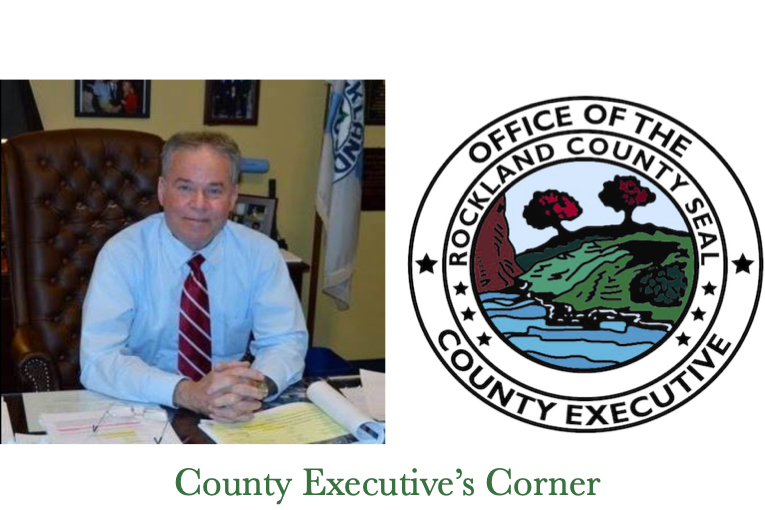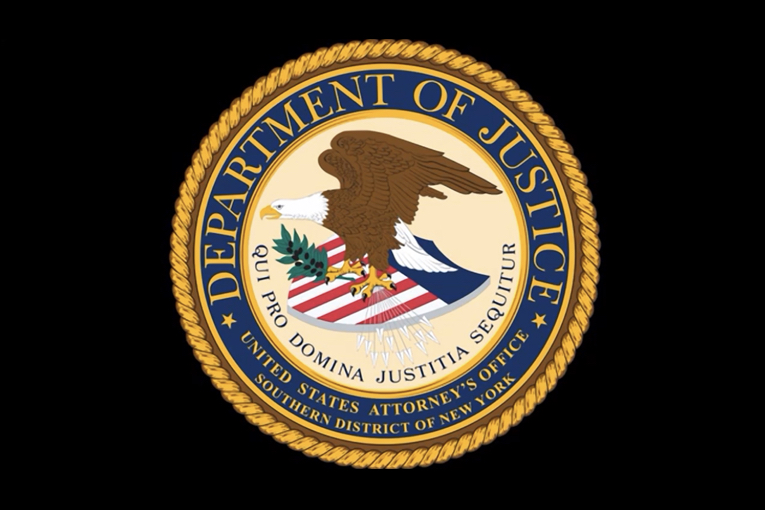New City, NY – County Executive Day announced his official opposition to the “10-Point Plan to Transform and Fund the MTA” introduced by Governor Andrew Cuomo and New York City Mayor Bill de Blasio. The plan as it now stands is severely lacking and would only compound the problems faced by Rockland County commuters.
County Executive Ed Day’s Statement:
“Rockland County has a unique position within the MTA service region, being the least served by MTA of any other member of the Metropolitan Commuter Transportation District (MCTD). There exists a $42 million annual value gap between the value of services and funding provided by the MTA to Rockland County, and the contributions of Rockland County residents and businesses to the MTA. This value gap has been present for more than 30 years, as evidenced by even MTA’s own periodic analyses, and has likely increased again since the last study was performed in 2012. No other member of the MCTD has any value gap; in fact, every other member benefits from a surplus of value (they pay less than the value of the services they receive).
Since I took office in 2014, there has been significant progress with improving the relationship between MTA, Metro-North and Rockland County. Unfortunately, the level and quality of rail service provided to Rockland County has not improved during this time. It has, in fact, worsened dramatically. The Pascack Valley Line, in particular, has been plagued with service disruptions, cancelled trains and extremely limited service schedules – all of which have a severe effect on Rockland commuters. “West of Hudson” commuter rail service from Rockland County is operated by NJ TRANSIT (NJT), under contract with Metro-North. This arrangement has always been problematic, at best, but has risen to a deplorable level over the past several years. On behalf of Rockland residents and commuters, I have implored Metro-North time and again to take responsibility for the abhorrent level of service being provided via that contract, and improve the Operating Agreement it maintains with NJT to hold NJT accountable for service interruptions and failures. The current Operating Agreement, which expired in 2012 and is unceremoniously renewed each year, provides no penalties or incentives to ensure Metro-North’s money is well-spent, nor does it ensure that service is consistently provided to Rockland County residents.
[callout bg=”#” color=”#” border=”#” radius=”0″ bt_pos=”right” bt_bgcolor=”#” bt_hoverbg=”#” bt_textcolor=”#” bt_texthcolor=”#” bt_bordercolor=”#” bt_hoverborder=”#” bt_radius=”0″ bt_outer_border_color=”#” bt_icon_color=”#”]We need a new agreement with teeth, and we need Metro-North to provide oversight that holds NJT to the terms.[/callout]
While we applaud Metro-North President Cathy Rinaldi for recently holding back payments to NJT and establishing a Working Group with NJT to address West of Hudson service issues, more must be done. First and foremost, the restoration of the three trains that were eliminated on the Pascack Valley line more than nine months ago for NJT’s Positive Train Control work – including two of Metro-North’s four express trains – must be prioritized, along with the restoration of the four trains that were eliminated on the Main/Bergen line. Metro-North must begin to make meaningful capital investments in Rockland County, such as funding the passing sidings that are so desperately needed to expand service on the Pascack Valley Line, building station houses where none exist, and facilitating the decades-overdue improvements needed to make Suffern Station accessible. Suffern Station has never been prioritized because it is a NJT-owned station located in New York State. This must change.
In terms of financing MTA and Metro-North, Rockland County cannot support the Congestion Pricing proposal recently put forth. The proposed model would dramatically affect Rockland County commuters who are forced to drive into Manhattan because of the dearth of transit options available to them. More than 60% of Rockland residents who work in Manhattan drive or carpool to get there. Why should nearly 10,000 Rockland residents have to finance the MTA through congestion pricing tolls when the MTA does not provide enough of the mass transit alternatives they could be using? Transit service that – again – we pay for but do not receive.
In addition, the current congestion pricing proposal does not give any priority to funding Metro-North – in fact, it gives first priority to the subways, city buses and further investments to expand transit availability to areas in the outer boroughs. What about service expansion from Rockland County, which has just ONE Metro-North express train option and requires a transfer to get us into Manhattan?
In light of our $42 million annual value gap, we already pay an inordinate amount of funds into the MTA and do not realize appropriate levels of service. Any rational congestion pricing plan must also include tolling the free East River Bridges. Under the current proposal, commuters from Rockland, Staten Island and other areas will have to pay bridge tolls to drive into Manhattan and then pay the congestion pricing toll when they cross the zone. Why should drivers from Brooklyn and Queens be exempt from double tolling when others are not? Plus, those outer boroughs already have access to the subway system. It is illogical to not toll the East River bridges as part of financing the MTA.
Rockland cannot support a congestion pricing plan that does not include exempting or heavily discounting Rockland residents, ensuring a portion of the funds generated go toward commuter rail improvements for the Rockland portion of Metro-North’s West of Hudson service, and tolling the East River bridges.
With regard to the Governor’s proposed restructuring of the MTA, I would also remind our State elected officials that Rockland County only has a one-quarter vote on the MTA Board, “sharing” a full vote with Orange, Putnam and Dutchess Counties. This inequitable representation has gone on for decades longer than it should have been allowed, and we welcome a restructuring plan that would provide equal votes for ALL MTA voting members.
To address our value gap, Rockland County has consistently called for the NY Public Authorities Law, Title 11, Section 1270-A (Metropolitan Transportation Authority Special Assistance Fund) and Section 1270-B (Metropolitan Transportation Authority Dutchess, Orange and Rockland fund [DORF]) to be amended to increase Rockland County’s minimum allocation through the DORF fund. A reasonable increase, given the eight-figure annual value gap amount that has existed for more than 30 years, would be from a minimum of $2 million to a minimum of $10 million, with an annual COLA increase. Rockland’s portion of the DORF funds, derived from the Mortgage Recording Tax, has dropped dramatically since the real-estate boom. As a result, we do not receive much more that the minimum allocation each year. The Public Authorities Law should be amended to increase Rockland County’s allocation.
Any plan to transform the MTA must address these issues; Rockland County and our commuters have been underserved for far too long.”












Amazing! This blog looks just like my old one! It’s on a entirely different topic but it has pretty much the same page layout and design. Excellent choice of colors!
I have been surfing online more than 3 hours today, yet I never discovered any interesting article like yours. It is lovely price enough for me. In my opinion, if all webmasters and bloggers made just right content as you did, the internet can be much more helpful than ever before.
Thanx for the effort, keep up the good work Great work, I am going to start a small Blog Engine course work using your site I hope you enjoy blogging with the popular BlogEngine.net.Thethoughts you express are really awesome. Hope you will right some more posts.
I used to be suggested this blog through my cousin. I’m now not sure whether this publish is written by means of him as nobody else realize such targeted about my trouble. You are amazing! Thanks!
WONDERFUL Post.thanks for share..extra wait .. …
Hello, Neat post. There is a problem with your web site in internet explorer, might check
this? IE nonetheless is the market chief and a
good component of other folks will miss your great writing due to this
problem.
I used to be more than happy to seek out this internet-site.I needed to thanks for your time for this excellent read!! I positively enjoying each little little bit of it and I have you bookmarked to take a look at new stuff you weblog post.
I really appreciate this post. I?¦ve been looking all over for this! Thank goodness I found it on Bing. You have made my day! Thank you again
This post is invaluable. When can I find out more?
Spot on with this write-up, I really suppose this web site needs far more consideration. I’ll in all probability be once more to learn rather more, thanks for that info.
It¦s actually a great and useful piece of info. I am happy that you simply shared this helpful information with us. Please keep us up to date like this. Thank you for sharing.
Valuable information. Lucky me I discovered your website by chance, and I’m shocked why this accident didn’t happened earlier! I bookmarked it.
Your style is so unique compared to many other people. Thank you for publishing when you have the opportunity,Guess I will just make this bookmarked.2
I like what you guys are up also. Such intelligent work and reporting! Carry on the superb works guys I have incorporated you guys to my blogroll. I think it will improve the value of my web site 🙂
I’m no longer positive where you’re getting your info, but great topic. I must spend some time studying much more or understanding more. Thanks for magnificent information I used to be in search of this information for my mission.
I really appreciate this post. I¦ve been looking all over for this! Thank goodness I found it on Bing. You have made my day! Thx again
Nice post. I was checking constantly this blog and I’m impressed!
Extremely useful info specifically the last part 🙂 I care for such info a lot.
I was seeking this certain info for a long time.
Thank you and best of luck.
Hi there! This blog post could not be written muchbetter! Looking through this article reminds me of my previous roommate!He continually kept talking about this. I’ll forward this articleto him. Fairly certain he’ll have a very good read.Many thanks for sharing!
Thank you for sharing with us, I conceive this website really stands out : D.
Heya i am for the first time here. I found this board and I find It truly useful & it helped me
out a lot. I hope to give something back and aid
others like you aided me.
my web page – Globalatto Co
What a data of un-ambiguity and preserveness of valuable knowledge concerning unpredicted feelings.
Good way of describing, and pleasant piece of writing to obtain facts regarding my
presentation subject matter, which i am going to deliver in academy.
https://twitter.com/MedioxilAm
Good day! This is my first visit to your blog! We are a team of volunteers and
starting a new initiative in a community in the
same niche. Your blog provided us beneficial information to work on. You have done a extraordinary
job!
These are truly wonderful ideas in on the topic of blogging.
You have touched some pleasant things here. Any way keep up wrinting.
I like the valuable information you provide in your articles.
I’ll bookmark your weblog and check again here regularly.
I’m quite sure I’ll learn a lot of new stuff right here!
Good luck for the next!